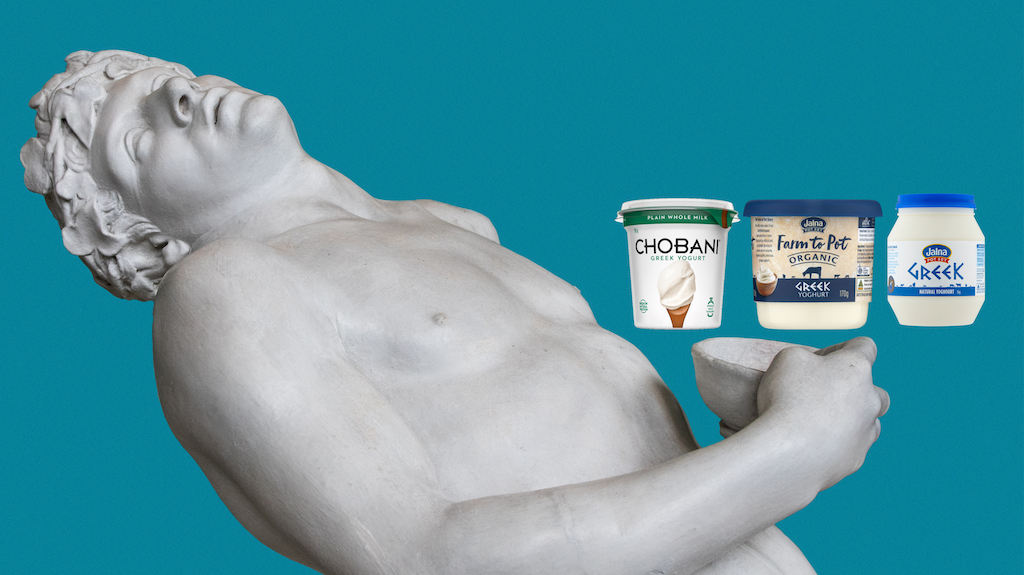Natural Greek yoghurt can be used in many different ways, like preparing a nutritious breakfast, mixing with fruit for a snack, making homemade ice cream, or creating a wonderful dip, e.g. garlic.
Yogurt can be the foundation of so many dishes, so it’s worth knowing how to choose the best one on the supermarket shelf. Should you be considering its taste? Consistency? Price? Practical packaging? Origin? Each of these factors is important, but the most important thing to look for is the composition of the yogurt. After all, most of us want to eat food that’s healthy, without artificial food additives and other enhancers.
Let’s take a closer look at a few Greek yoghurts on the market and check which is worth buying and which is better being put back on the store shelf.
What should Greek Yogurt consist of?
Our list includes 10 Greek yoghurts from different companies. All are available in popular supermarkets, like Coles or Woolies, and their prices start from just a few dollars per pack. Traditionally, Greek yoghurt is obtained from specially prepared milk, i.e. evaporated milk, with appropriately selected bacterial strains and excess whey drained from the final product (whey is the remaining liquid after milk has completely curdled). These days, Greek yoghurt is made from milk, cream, and live yoghurt cultures. If you see any other ingredients, they will have been added to improve things like consistency and texture – avoid these kind of yoghurts! Such additives are also used to reduce production costs and make the yoghurt contain:
- A higher fat content,
- More carbohydrates, and
- A higher caloric value.
Analysis of Greek Yoghurt
Out of 10 Greek yoghurts, only 3 have an exemplary composition and deserved our recommendation. These are Chobani Greek Yoghurt Plain Whole Milk, Jalna Farm To Pot Organic Yoghourt Greek, and Jalna Greek Yoghurt. They contain only 3 basic ingredients, which is what every Greek yogurt should be made of. The other seven yoghurts in the list, in addition to the basic ingredients, also include:
- Milk solidsThis is obtained by evaporating milk with different fat cont... – This is obtained by evaporating milk with different fat content. In theory, milk solids are not a bad ingredient, however it has been reported to contain oxidized LDL cholesterol which may contribute to the development of atherosclerosis. In addition, milk solids can often contain anti-caking agents which can sometimes be negative to our health. The addition of powdered milk (i.e. milk solids) also acts as a thickener and affects the final calorific value of the yogurt. It’s better to avoid products with this ingredient, just in case.
- PectinThis is a natural gelling substance that is most often obtai... – This is a natural gelling substance that is most often obtained from apples and citrus fruits. Pectin is also a water-soluble fibre. This type of fibre swells when exposed to water and gives a quick feeling of fullness. It also affects the proper functioning of the intestines. Pectin is added to yoghurt for its thickening and stabilising functions. Thanks to this, you can get the right, desired consistency. Pectin is considered safe for health, but since it doesn’t need to be added to the product, why should it be?
What else should you pay attention to when choosing yogurt?
It’s worth looking for yoghurts that have the strain of probiotic bacteria mentioned. These can be Lactobacillus casei ssp. Rhamnosus, Lactobacillus casei ssp Shirota, Lactobacillus casei DN-114 001, Lactobacillus rhamnosus, Lactobacillus plantarum or Bifidobacterium lactis. It is good if the amount of live probiotic bacteria is also given, which should be quite a lot – anywhere from 10 to 100 million in 1 gram of yogurt. Many producers list the strain but do not include the number of bacteria (e.g. Evia Natural Yoghurt No Added Sugar). This is very important information to know, because having low amounts of bacteria will not provide the desired effect of Greek yoghurt and will not strengthen the intestinal bacterial flora.
Summary
As you can see from our list, not every Greek yogurt has a good composition. Only 3 out of 10 products deserved our recommendation. This is a good result anyway 😉 We hope that on your next shopping trip you’ll take into consideration what you’ve read here and choose the right Greek yoghurt – one with a good composition and probiotics, which will become a valuable diversion in your diet.
Greek Yoghurt Comparison checklabels.com.auThe Greek Yogurt products that we have looked at and compared:
- Farmers Union Greek Style Natural Yoghurt 1kg
- Woolworths Greek Style Yoghurt 1kg
- Tamar Valley Greek Yoghurt Natural 1kg
- Chobani Greek Yoghurt Plain Whole Milk 907g
- Jalna Farm To Pot Organic Yoghourt Greek
- Jalna Greek Yoghurt 1kg
- Tempo Greek Style Natural Yoghurt 700g
- Coles Greek Style Natural Yoghurt
- Evia Natural Yoghurt No Added Sugar 700g
- Five:am Organic Greek Yoghurt 700g

Wow, only 3 out of 10! These must have been tough to put out there since some of these brands are quite popular. I guess not all organic are not as healthy as we thought they are.